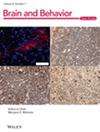Development of a Predictive Model for the Progression of Subjective Cognitive Decline: A Longitudinal Study
Abstract
Background
Subjective cognitive decline (SCD) is a preclinical stage of Alzheimer's disease (AD). However, the factors influencing SCD progression remain unclear. It is necessary to develop a model for predicting cognitive progression in SCD.
Methods
96 participants with SCD and 36 healthy controls (HCs) were enrolled from the Chinese Imaging, Biomarkers, and Lifestyle study between January 1 and June 30, 2022. Of these, 70 completed approximately 12 months of follow-up visits. Clinical, cognitive assessment, and neuroimaging data were collected. Cox proportional-hazard regression models were used to investigate the risk factors and construct a nomogram.
Results
Compared to HCs, participants with SCD had higher Pittsburgh Sleep Quality Index (PSQI) scores, indicating they had poorer sleep quality, and had higher cerebral blood flow (CBF) in bilateral hippocampus, thalamus, and left precuneus (all p < 0.05). Poorer sleep quality and left precuneus CBF were independently associated with SCD progression (all p < 0.05). The nomogram constructed with these factors achieved good discriminative ability, with an AUC of 0.785 (95% CI: 0.609–0.960) and a coherence index of 0.840 (95% CI: 0.733–0.948). The calibration curves showed significant agreement between the model and actual observations, and the decision curve analysis of the model showed clinical benefit.
Conclusions
A predictive model for SCD progression constructed based on risk factors including PSQI scores and left precuneus CBF showed good accuracy and discrimination ability, and it may provide valuable insights for early stage screening of AD.


 求助内容:
求助内容: 应助结果提醒方式:
应助结果提醒方式:


